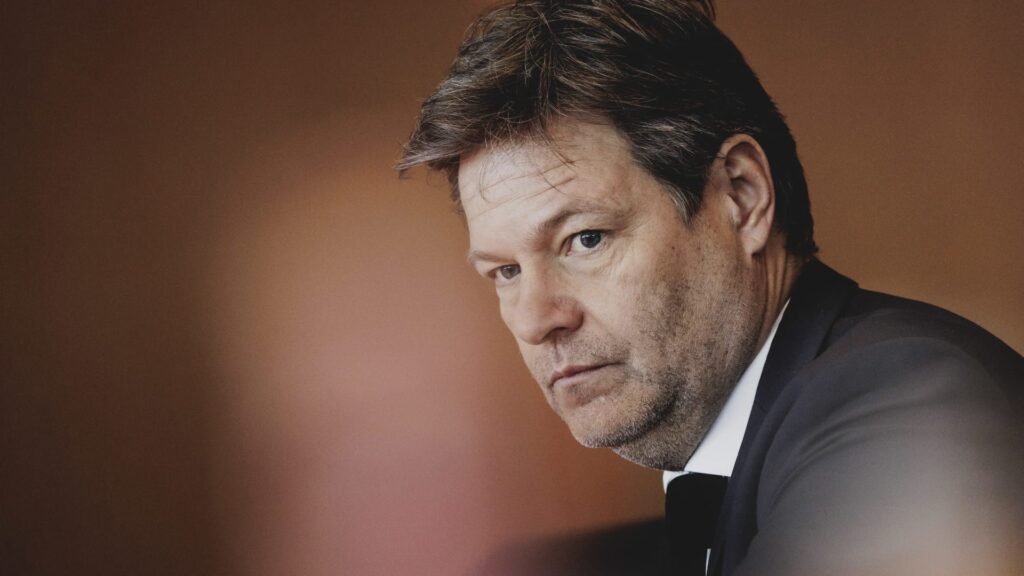Robert Habeck, German Minister of Economy and Climate Protection and Vice Chancellor, during the weekly Cabinet meeting on February 21, 2024 in Berlin, Germany.
Florian Gärtner | phototech | Getty Images
Germany's gross domestic product is now expected to grow by just 0.2% this year, as the country wades through “difficult waters,” German Economy Minister Robert Habeck said on Wednesday.
The revised GDP growth forecast fell from the previous estimate of 1.3%. Habeck said the government now expects German GDP to increase by 1% in 2025.
Speaking during a press conference, the minister attributed the revised forecasts to the unstable global economic environment and to the decline in global trade growth, along with rising interest rates.
He said that these issues negatively affected investments, especially in the construction industry.
Home construction in Germany is among the sectors most affected by this, with developers canceling their projects and the number of orders falling, according to recent data. Analysts fear that the sector will face more difficulties this year.
“The economy is in difficult waters,” Habeck said in a statement posted online, according to a CNBC translation. “We are emerging from the crisis more slowly than we had hoped.”
This comes despite lower energy costs and inflation and consumers' purchasing power increasing again, he said. However, Habeck stressed that Germany had proven resilient in the face of losing access to supplies of crude oil and seaborne petroleum products from Russia, as a result of the war in Ukraine.
Budget crisis
The country narrowly avoided a recession in the second half of 2023, despite a 0.3% GDP decline in the fourth quarter as well as for the full year of 2023. However, the third quarter GDP of 2023 was revised to reflect the recession. This means that the country has avoided a technical recession, which is characterized by two consecutive quarters of negative growth.
Habeck pointed to Germany's recent budget crisis, which has left a 60 billion euro ($65 billion) gap in the government's financial plans over the coming years, as an additional economic challenge.
Last year, the country's Constitutional Court ruled that it was illegal for the government to reallocate emergency debt incurred but not used during the Covid-19 pandemic to its existing budget plans. This caused significant disruption to financial planning and forced the government to make cuts and savings.
Habeck said in statements published on Wednesday that the biggest challenge facing Germany is the shortage of skilled workers, which will worsen in the coming years. He also said that there were many structural issues that needed to be addressed to “defend” Germany's competitiveness as a manufacturing centre.
Habeck also spoke about inflation expectations, saying it is expected to fall to 2.8% throughout 2024, before returning to the 2% target range again in 2025. The consolidated CPI for January 2024 came in at 3.1% on the basis of annual.
